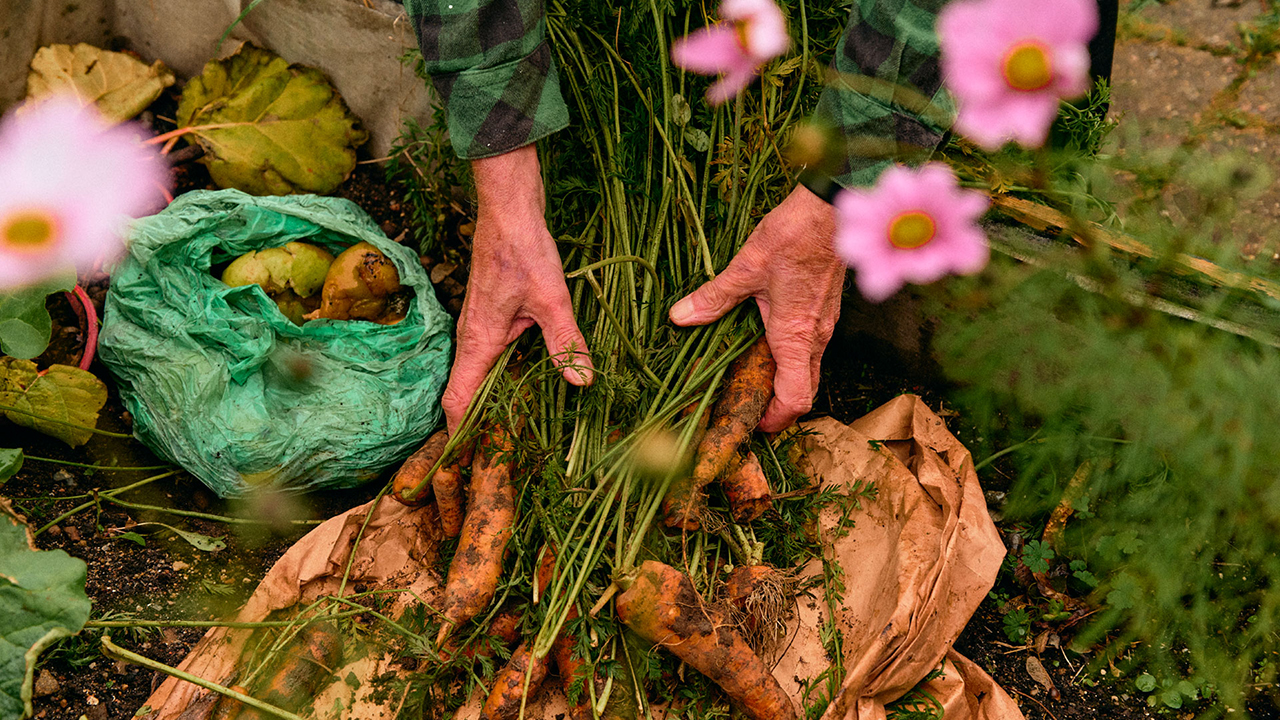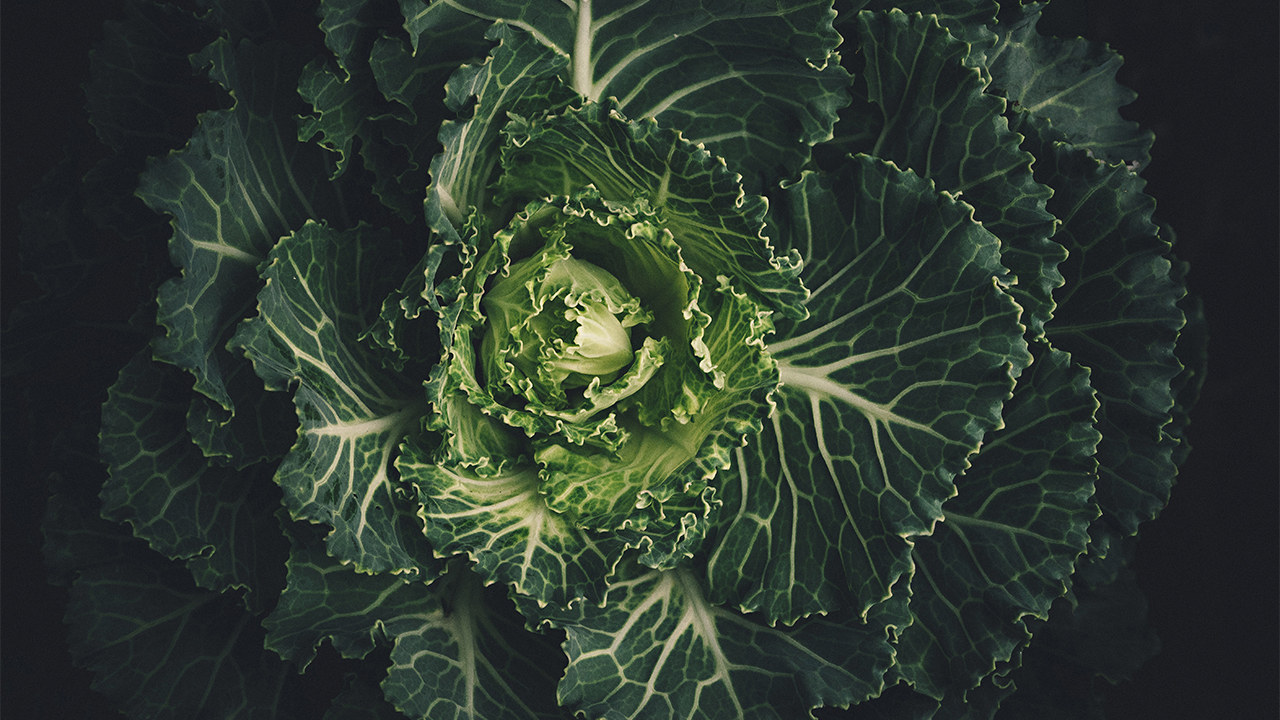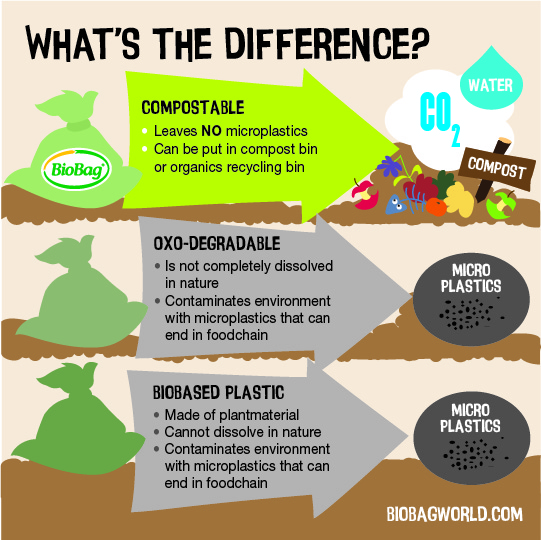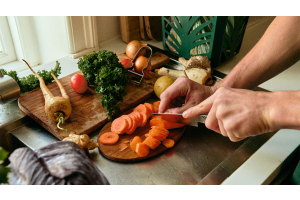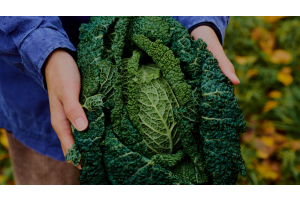Page 2 - Environmental Impact
-
Posted: January 12, 2022Read more »
A clear advantage is the significant increase in the quality and quantity of separately collected organic waste and a corresponding increase in the amount of compost produced. Due to misunderstandings, there are different opinions and misconceptions are unfortunately quite common - both within municipalities as well as among consumers.
The study highlights some of the many scientifically proven benefits that certified industrial compostable organic waste bags offer to municipalities, citizens and to the environment. They significantly reduce the amount of conventional plastic in compost, as shown by a study published by the Wizenhausen Institute and University of Bayreyth.
Large scale experiments in Berlin, Milan, Munich and other cities showed that the amount of separately collected organix waste increased significantly by using the industrial compostable organic waste bags. Ventilated food waste containers remove odours and mold and minimize condensation, while reducing the weight
-
Posted: May 11, 2021Categories: Environmental ImpactRead more »
Biobag Ireland UK is the first retail range of compostable bags to be certified for use in Irish food waste (brown) bins. Certification is awarded by Cré IRELAND which operates the only Irish scheme providing third party, independent assessment of compostable products in Ireland.
Only products like Biobag which have been assessed and certified by the scheme will be entitled to display the Irish ‘Cré Tick’ symbol. The scheme is great news for Irish consumers. It offers confidence that a product is accepted in domestic, food waste bins for processing locally in Ireland. This will increase public awareness and acceptance, leading to increased use of food bins and composting. Biobags are certified already by every major international body including OK Compost HOME and INDUSTRIAL and EN13432.
Adding a recognisably Irish certification to Biobag means that Irish consumers, waste collectors and composting facilities are assured that Biobag products are trustworthy, designed for Irish conditions
-
Posted: January 12, 2021Read more »
Novamont has expanded considerably in the past decade, in particular through internal growth, by acquiring and regenerating obsolete industrial sites. This transaction will allow Novamont to further expand its compostable bioplastics business into Northern/Eastern Europe, North America and Australia. Biobag will continue to operate as an independent organization, with the same leadership team who has achieved excellent results over the past few years.
-
Posted: December 15, 2020Read more »
“Soil is not renewable and it takes more than 2000 years to form a 10 cm layer of soil. But our lives depend on the soil – all production of food begins in the soil and soil binds enormous quantities of CO2 that would otherwise be released into the atmosphere. But in spite of this, the UN’s Food and Agriculture Organisation assesses that 33% of the planet’s soil is degraded and damaged by chemical contamination, acidification, nutrient imbalance and more,” says Novamont CEO, Catia Bastioli.
“If everyone knew that soil fertility, which is the basis of our food supply, was not renewable it would be a lot easier to create a sense of individual and collective responsibility.” “The combined effects of climate change and an exhausted soil can, over the course of the next 30 years, reduce agricultural output by half in some drought-affected regions. Globally, we need much more organic material and a comprehensive separation of food waste and organic materials can help contribute to that,” says
-
Posted: June 10, 2019Read more »
Building the perfect compost pile
To build a healthy compost pile, you need a mix of "browns" and "greens." Browns include leaves, straw, and sawdust, which are rich in carbon. Greens include kitchen scraps, grass clippings, and manure, which are rich in nitrogen. Aim for roughly three parts browns to one-part greens.Maintaining moisture is equally important. Your compost pile should be as damp as a wrung-out sponge. If it's too dry, the decomposition slows down. If it’s too wet, it can start to smell bad. Turning the pile introduces oxygen, which speeds up decomposition. Regularly turning your pile, ideally twice a week, helps maintain the necessary conditions for rapid composting.
-
Posted: September 14, 2018Read more »
If we continue as we do today, then there can potentially be 12 billion tonnes of plastic ending up in the environment by 2050. The problem with non-biodegradable plastic is that plastic accumulates in the environment. Certified compostable and biodegradable plastic combats an accumulation of plastic.
It is fortunate that there are alternatives to conventional plastic bags. The green Biobags used in many large cities across Europe are one of these options. Biobag waste bags, sacks, and films are certified compostable and biodegradable according to the European Standard EN 13432, the US Standard ASTM D6400 and the Australian Standard AS473.




